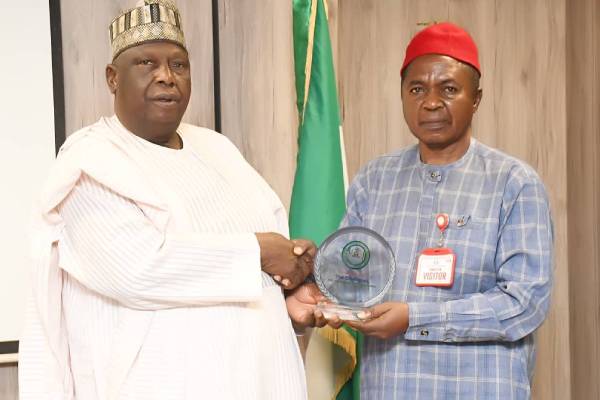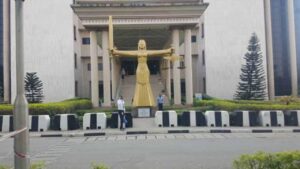The Police Service Commission (PSC) says it will leverage forensic and DNA studies to help build a new Police Force for a new Nigeria.
The PSC made this disclosure when its chairman, DIG Hashimu Argungu (rtd), received a delegation from the University of Benin’s Centre for Forensic Programmes and DNA Studies (CEFPADS), led by the institution’s Deputy Vice Chancellor (Administration), Professor Christopher Osunbor.
Argungu stressed that knowledge of forensics and DNA would aid the Police and the Commission in investigating delicate crimes across the country.
He directed the Director of Human Resources and the Director of Legal Services to meet with the Centre immediately and draw up a Memorandum of Understanding (MoU) for a partnership, which will be extended to the Nigeria Police Force.
The PSC chairman insisted it was to the advantage of both the Commission and the Police to embrace these techniques, adding that this knowledge is valuable across numerous fields and 
 crucial for policy formulation and implementation.
crucial for policy formulation and implementation.
The University delegation, which included Professor Eddy Ehikhamenor, Director of the Forensic and DNA Centre, Benedicta Ehanire, and Lucky Ikhalo, explained it was in the Commission’s and the Police’s interest to collaborate in developing expertise in forensics.
Professor Osunbor said the programme was “critical to the kind of jobs security agencies are involved in” and assured the delegation that the Centre was ready to provide services to aid the Commission’s operations.
Professor Ehikhamenor explained that the Centre operates under a public-private partnership to provide a sustainable molecular laboratory and forensic training.
It aims to help establish a National DNA Database for investigations, produce forensic education curriculums at all academic levels and aid the country’s policing and justice delivery.
He added that the Centre is designed to help identify mass casualties and unknown victims, and to provide ongoing capacity-building to stakeholders, including the Department of State Services, the Police and the Military.
The University is offering 12–20 slots for Police officers to pursue postgraduate studies in forensics and DNA each year and will collaborate to perform alcohol and drug testing for suspects under investigation.





